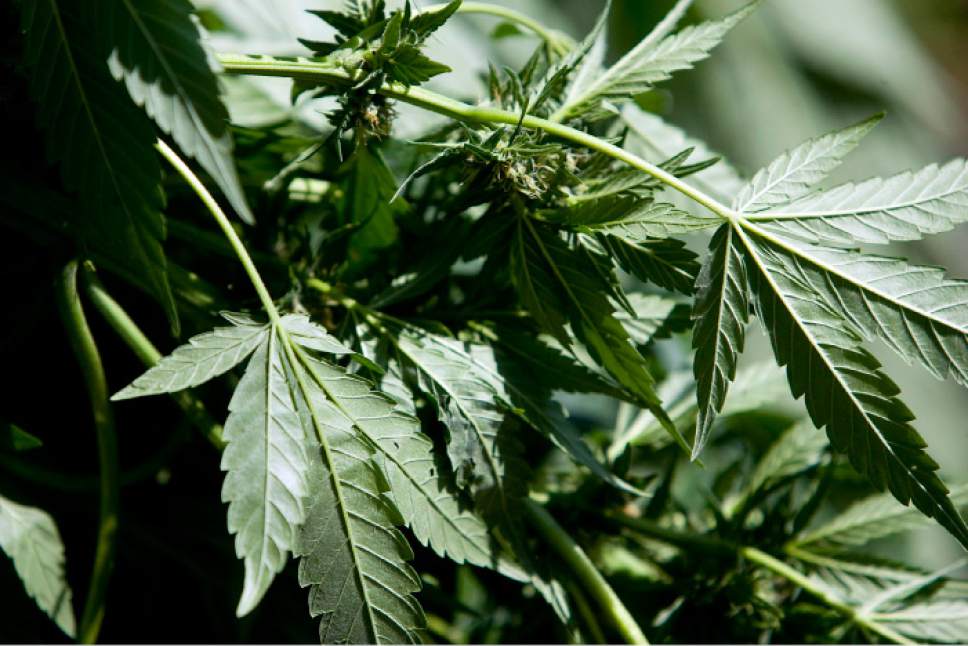This is an archived article that was published on sltrib.com in 2017, and information in the article may be outdated. It is provided only for personal research purposes and may not be reprinted.
Medical marijuana is not legal in Utah, and it may not be anytime soon. But lawmakers took a first step Monday to outline how it would be cultivated, produced and sold if it ever is made legal here.
The Senate Health and Human Services Committee voted 5-0 to approve SB211 and sent it to the full Senate.
"This is a road map leading to medical marijuana," said Sen. Jim Dabakis, D-Salt Lake City. "We are getting it set up, getting it ready. And all we have to do then is have a quick vote — and we'll have the legal structure" to accommodate prescription pot.
The bill's sponsor, Sen. Evan Vickers, R-Cedar City, a pharmacist, agreed. "It does create the pattern on how the state would handle it, if and when a [legalized medical marijuana] policy is adopted."
But Vickers said legalization won't happen in this year's Legislature. Because of uncertainty on how President Donald Trump's administration plans to handle medical marijuana in the states that technically violate federal laws, Utah leaders decided to wait and see what happens before trying to legalize it.
Still, Vickers said legalization could come soon "by the Legislature, it could be adopted by a referendum process, it could be adopted by the Legislature itself putting something on the ballot for next year."
So, Vickers said, "We felt like it was prudent to continue the discussion how the state would handle things, realizing nothing would be triggered until you had something in place that said we're going to legalize this type of cannabis product and for these conditions."
Among the bill's provisions is creating an electronic monitoring system to track marijuana "from seed to sale," through all steps of production and sale to help prevent theft and misuse.
Vickers said the state Department of Agriculture would oversee cultivation, including "the number of cultivators, processors and labs depending on the population and number of registered patients." A separate license would be required for each location, and financial backing and security would be mandated.
Cannabis must be grown indoors, under the bill. Each batch would be labeled and tested to allow tracking it through production and sale. "This helps ensure only legitimate product is coming through the system," Vickers said.
He said the Utah Division of Occupational and Professional Licensing would oversee dispensaries. Employees of cultivators, labs and dispensaries would be subject to state background checks.
The Health Department "would oversee individuals having cannabis cards, if they qualify."
The bill would exempt medical marijuana from regular sales tax, but impose a special sales tax to help pay for the program. Products through dispensaries would be available only to adults age 18 and older.
Vickers said he has had trouble figuring how to handle banking for those handling medical marijuana. Because it is still a class 1 narcotic, medical marijuana firms cannot use federally insured banks without breaking federal law.
He said the bill leaves this issue to the Utah Department of Finance to seek a solution. If one is not found, the businesses would need to operate on a cash-only basis. "That creates some inherent problems of its own," Vickers said. "There's some opportunity for crimes there."
The bill also would ban physicians from owning marijuana dispensaries.



